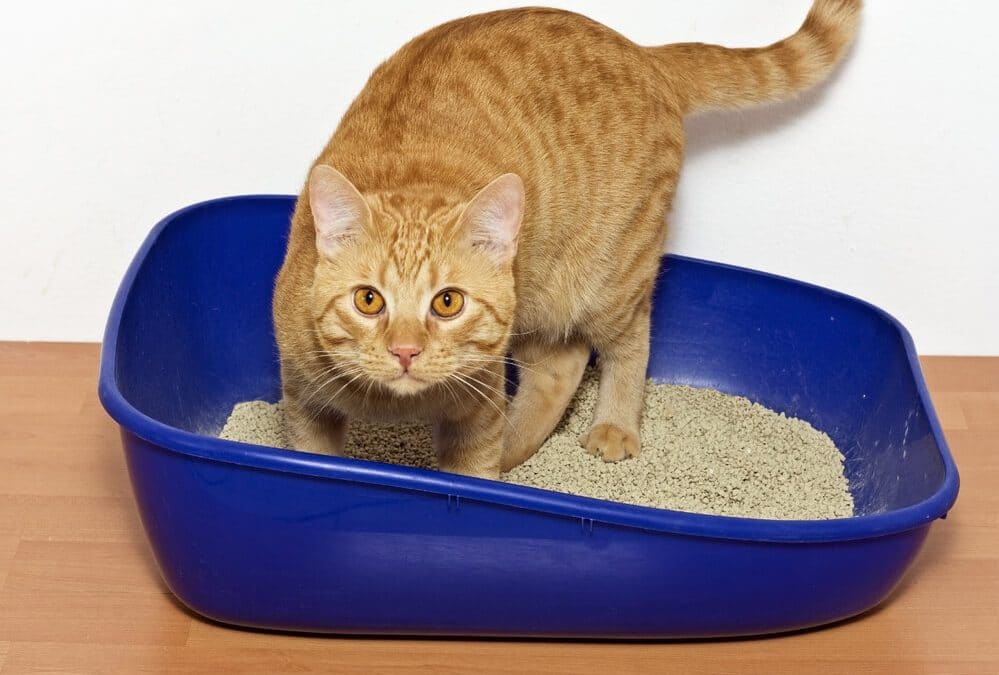Imagine this: you’re happily sipping your morning coffee, the sun streaming through the windows, and then BAM – you’re hit with the unmistakable aroma of cat poop. Except it’s not in the litter box. It’s on the floor, right in front of the litter box. Frustration sets in. Why? Why would your cat do this, knowing full well that a perfectly clean litter box is just a paw’s length away?

Image: testnreviews.com
This is a common problem that many cat owners face, and it can certainly be a source of stress. But, before you despair, know that this behavior is usually a sign of something amiss. Understanding the reasons behind this “litter box rebellion” is the first step towards a clean and happy home for both you and your feline friend.
Unveiling the Mystery: Why Cats Poop Outside the Litter Box
The most important thing to remember is that cats are creatures of habit. They have strong preferences, and a change in their environment, especially their litter box, can send them into a tailspin.
So where do you even begin to solve this mystery? Here are some of the most common culprits:
1. The Litter Box: A Case of Discontent
- Dirty Litter Box: Cats are naturally clean animals and will avoid using a dirty litter box. Imagine how uncomfortable it would be for you to use a toilet that hasn’t been cleaned in days, and you’ll get a sense of how your cat feels.
- The Wrong Litter: Litter comes in a variety of materials and textures, and just as different humans have different preferences, so do cats. Some cats find scented litters overwhelming, while others are sensitive to the dust in clay litters.
- Litter Box Location: Cats need privacy. If the litter box is placed in a high-traffic area or a location that makes them feel insecure, they may be hesitant to use it.
- Too Few Litter Boxes: If you have multiple cats, you need multiple litter boxes. Aim for at least one per cat, plus one extra.
- Too Small of a Litter Box: Your cat needs enough space to comfortably maneuver and do their business without feeling cramped.
2. Medical Matters: Addressing Potential Health Issues
Just like humans, cats can develop health problems that affect their elimination habits. Some common culprits include:
- Urinary Tract Infections (UTIs): These can cause pain and discomfort during urination, leading cats to avoid the litter box.
- Constipation: If your cat is struggling to pass stool, they may be less likely to use the litter box, or they may have accidents in attempt to relieve themselves.
- Arthritis: As cats age, they may experience pain from arthritis, making it difficult for them to reach the litter box, especially if it’s too high off the ground.

Image: www.youtube.com
3. Behavioral Clues: Understanding Your Cat’s Actions
Sometimes, your cat’s behavior can tell you a lot about why they’re pooping outside the litter box.
- Stress: Just like humans, cats are susceptible to stress, and changes in the environment can send them into a tailspin. A new pet, a noisy construction project, or even a change in routines can disrupt your cat’s comfort zone and cause them to act out.
- Territorial Issues: If your cat feels threatened or insecure in their own home, it can lead to inappropriate urination and defecation.
- Anxiety: Cats can experience anxiety from a wide range of factors, including separation anxiety, fear of new people or animals, or even loud noises.
The Remedy: Guiding Your Cat Back to the Litter Box
Now that you understand the reasons behind this behavior, you can start working on solutions.
1. Assessing and Adjusting the Litter Box:
- Cleanliness: Start by ensuring the litter box is clean and free of waste multiple times a day, especially for multi-cat families.
- Litter Type: Try different types of litter to find what works best for your cat. Experiment with different textures, materials, and perfumes.
- Location: If possible, move the litter box to a quiet and private location, away from busy areas.
- Size and Number: If your cat struggles to reach the litter box due to arthritis or it’s too cramped, consider getting a larger box or a low-entry litter box. And remember, multiple cats require multiple litter boxes!
2. Visiting the Veterinary Expert:
- Medical Checkup: A trip to the vet is always a good idea to rule out any underlying medical conditions.
- Medication: Your vet may prescribe medication to treat UTIs, constipation, or pain associated with arthritis, if necessary.
3. Calming Your Cat’s Anxiety and Finding Peace:
- Stress Management: It might sound silly, but consider a cat pheromone diffuser or spray. These can help calm your cat and alleviate anxiety.
- Enrichment Activities: Keep your cat entertained and mentally stimulated with toys, interactive games and puzzle feeders.
- Gradual Changes: If there’s a new pet or a big change in your home environment, introduce new things gradually to minimize stress.
- Create Safe Spaces: Provide your cat with a comfortable and secure space where they feel safe and protected.
Cat Poops On Floor In Front Of Litter Box
The Journey to a Cleaner Home: A Call to Action
Remember, this behavior is rarely a deliberate act of defiance. Your cat is trying to communicate something important, and understanding the root cause is crucial to finding a solution. Be patient and persistent, and with some effort, you can help guide your cat back to the litter box and create a clean and peaceful home for both of you.
If you’ve tried all of these solutions and are still struggling, don’t hesitate to reach out to a certified veterinary behaviorist. They can provide personalized advice and guidance for your specific situation.
Let’s work together to empower you and your feline friend to happily coexist, with clean floors and a healthy relationship.





